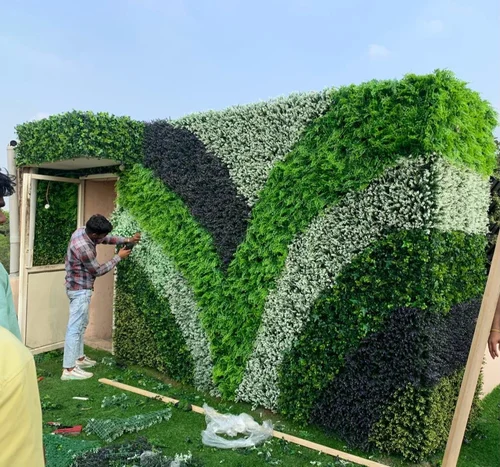
Artificial grass is a popular choice for softball fields due to its many advantages over natural grass. Here are some of the key benefits of using artificial grass for softball fields:
Durability: Artificial grass can withstand the constant wear and tear of softball games, including the impact of balls, bats, and cleats. It can also handle the abuse of daily practices and training sessions. Natural grass fields, on the other hand, require more frequent maintenance and repairs due to their susceptibility to wear and tear.
Year-round Playability: Artificial grass can be played on year-round, regardless of the weather conditions. It can withstand extreme heat, cold, and precipitation, allowing for consistent game schedules throughout the year. Natural grass fields, on the other hand, may become unplayable during inclement weather, such as heavy rain or snow.
Reduced Maintenance: Artificial grass requires minimal maintenance compared to natural grass. It eliminates the need for mowing, watering, fertilizing, and pest control, saving time and resources. Natural grass fields, on the other hand, require regular maintenance to ensure optimal playing conditions.
Reduced Injuries: The cushioned surface of artificial grass reduces the risk of injuries, especially lower body injuries. The impact of balls and cleats is dispersed more evenly across the artificial grass surface, compared to natural grass, which can concentrate impact forces and cause injuries.
Uniform Playing Surface: Artificial grass provides a consistent and uniform playing surface throughout the field. There are no bare patches, uneven areas, or dips that can affect the game, unlike natural grass fields, which can become uneven and patchy over time.
Improved Drainage: Artificial grass drains water quickly, preventing puddles from forming and allowing the field to dry quickly after rain or irrigation. This ensures a safe and playable surface for players, especially in wet weather. Natural grass fields, on the other hand, can become waterlogged and muddy, affecting the game and safety of the players.
Low Allergic Reactions: Artificial grass is an allergy-friendly surface, eliminating the pollen and grass allergens that can cause allergies and respiratory problems for players, coaches, and spectators. Natural grass fields, on the other hand, are a known source of pollen and other allergens.
Cost-Effectiveness: While the initial installation cost of artificial grass may be higher than natural grass, the long-term maintenance savings can make it a more cost-effective option over time. Artificial grass fields require less mowing, watering, fertilizing, and pest control, saving time, money, and labor costs.
Overall, artificial grass is a superior choice for softball fields due to its durability, year-round playability, reduced maintenance, reduced injury risk, uniform playing surface, improved drainage, low allergic reactions, and cost-effectiveness. It provides a safe, consistent, and playable surface for softball players and spectators, while minimizing the time and resources required for maintenance.










